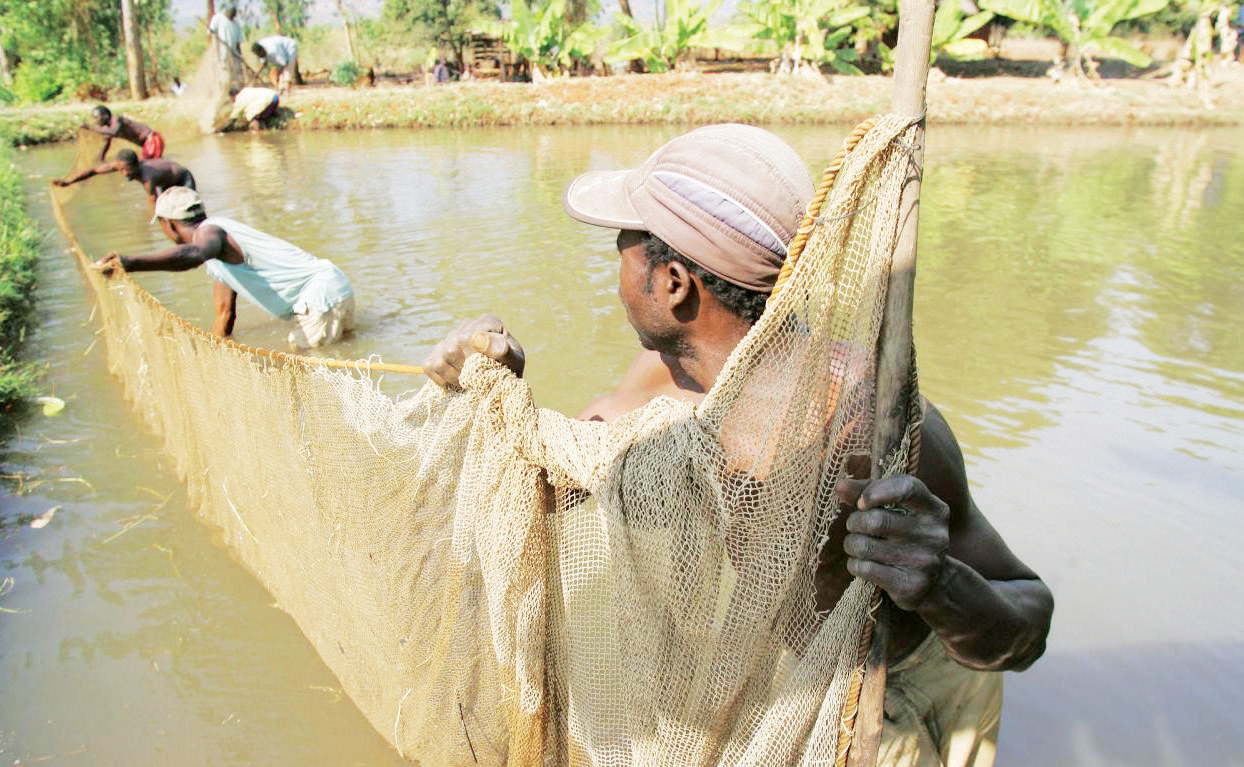Copyright times

Masauko Mzongwe & Sangulukani Mzembe, contributors: In Malawi, fish farming is a vital industry that provides income and food security for many families. However, the journey for fish farmers is not an easy one. Many of them struggle with limited access to quality fish feed, which affects the growth and health of their fish. Finding suitable locations for ponds can also be a challenge, as some areas lack the necessary resources for successful fish farming. Despite these obstacles, fish farmers in Malawi remain resilient and passionate about their work. According to founder of Mawa Farms Malawi, Yasitha Kapezi Mmodzi, the main challenge fish farmers face is the availability of quality fish feed, cost and type, as well as security and environmental issues such as water. “Resources are always a challenge to ensure we are sustainable and can offer enough security from both predators and water shortages, mostly due to limited capital. “The market is also a big challenge, as we cannot supply continuously since we are still growing and have capital limitations,” Mmodzi says. She adds that to overcome these challenges, she uses strategies such as staff training and ensuring protection from runoff water from upland areas. “We also do constant monitoring, ensuring protection from runoff water from upland areas, building drainage systems along the ponds, planting grass around the ponds to prevent soil erosion and planting non-poisonous trees for shade and fish feed,” Mmodzi says. According to Mmodzi, there are opportunities for growth and success in fish farming despite the current challenges. She says fish are a good source of protein and can be preserved more easily than other types of meat, for example by drying. “Creating ponds is also easier than keeping livestock, as long as there is water. Fish can grow and we can potentially expand related industries and create many jobs,” Mmodzi adds. Mzuzu aquaculture field officer Silvester Jambo notes that one way to overcome challenges in fish farming is by using greenhouses to produce quality fingerlings. Jambo is against waiting for the breeding season, which usually occurs between August and May. “We also train hatchery operators to help produce and supply fingerlings to other local farmers,” he says. The officer further says that Mzuzu Aquaculture Centre provides support to local fish farmers, including extension services on general pond management and fish feeding. He adds that the centre provides extension services on pond management, fish feeding, harvesting, processing, breeding, predation and disease control. “We supply genetically improved fingerlings and have started producing floating feed using a high-tech feed mill installed at Luwinga Industrial Site. We also train fish farmers, both cooperatives and individuals, and provide extension services,” Jambo says. Additionally, Mzuzu Aquaculture Centre runs training programmes for local fish farmers, including incubation initiatives. Local fish farmer Morson Thole shares some of the challenges he faces, including the availability of quality fingerlings, which affects his ability to stock and maintain his ponds. Thole admits that insufficient supply of healthy fingerlings limits his ability to stock and maintain ponds. “Accessing affordable and nutritious feed is also a major challenge, affecting fish growth and health. Limited technical knowledge is another issue, as I need more training and support to improve my farming practices and manage diseases effectively,” he says. He adds that he lacks sufficient resources and support to sustain his operations. The farmer states that they need more investment in advanced equipment to improve efficiency and productivity. “Access to quality feed and fingerlings is crucial for healthy fish growth. Training and capacity building are also essential to enhance technical knowledge. Without adequate resources and support, it is difficult to maintain a profitable and sustainable business,” he says. Despite these challenges, Thole believes there are opportunities for growth and success in fish farming. He says with increased investment in advanced equipment, quality feed and fingerlings, we can improve productivity and income. “Training and capacity building are vital to enhance technical knowledge and develop best practices. Improved extension services would also give us expert advice and guidance, helping us make informed decisions and grow our businesses. “By seizing these opportunities, we can contribute to food security in Malawi and build a sustainable fish farming industry that benefits our communities,” Thole says.



